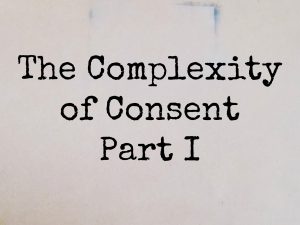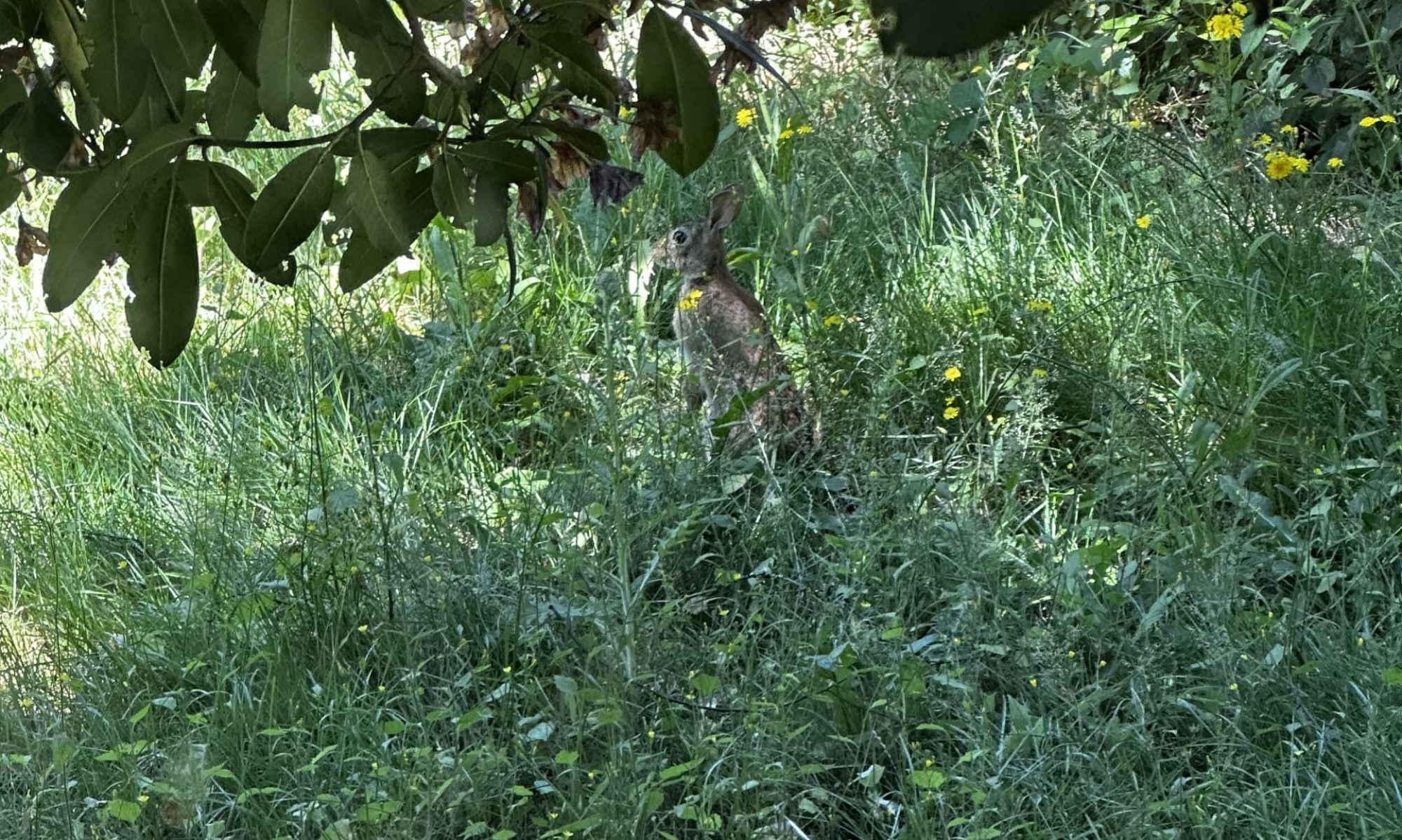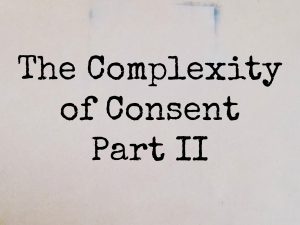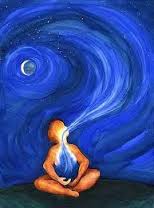 Five years ago, while still in graduate school, I had a day surgery give me a bigger understanding of trauma and the impacts it has on our body. That semester I fought to be in the Crisis & Trauma class, it was the last time it would be offered by one of my favorite professors and there was a screaming within me that I needed that particular class at that particular time in my life. I had to fight with my academic advisor and demand over and over to be let into the class. I didn’t understand the warrior within me who was battling so hard for this class, there was no logic at that time which said to take it now and that I couldn’t take it later. And yet I knew, my body knew, that taking the class later was not what I needed. I needed to take it now. I eventually convinced my advisor and he got me into the class.
Five years ago, while still in graduate school, I had a day surgery give me a bigger understanding of trauma and the impacts it has on our body. That semester I fought to be in the Crisis & Trauma class, it was the last time it would be offered by one of my favorite professors and there was a screaming within me that I needed that particular class at that particular time in my life. I had to fight with my academic advisor and demand over and over to be let into the class. I didn’t understand the warrior within me who was battling so hard for this class, there was no logic at that time which said to take it now and that I couldn’t take it later. And yet I knew, my body knew, that taking the class later was not what I needed. I needed to take it now. I eventually convinced my advisor and he got me into the class.
Let’s go back a bit.
When I was 18 I was diagnosed with endometriosis. In the months leading up to this diagnosis, I had horrible and debilitating PMS and periods. Debilitating to the point that I missed many days of my senior year of high school because I was curled up in a ball on our bathroom floor, dripping cold sweats or tightly curled in my bed moaning and crying and screaming because of the pain in my abdomen, my uterus, my womb. This pain led to multiple ER visits and one of them finally led to me being fully admitted and having the surgery that discovered and removed, the endometrial tissue growing outside my uterus causing all the pain.
The whole of that hospital experience was awful. The surgeon, may he be burning in the depths of hell, completely disregarded me. He wanted me to sign a “consent” form that would allow him to remove my uterus and ovaries if he saw fit (I did not agree to this, but only because my adopted mom was there at my side advocating for me; I was so doped up on pain medication I would have signed anything). When I asked him if the surgery would leave scars he let out a smug laugh and said in a condescending voice “Of course it will leave scars!”. After the surgery, a week or two after, in the follow up appointment he told me I would never be able to have children due to the endometriosis, that I would never be able to get pregnant and if I did by some miracle I would never be able to carry a child to term. These words, his authoritative words, led to some rather risky and stupid behavior during my early 20s and honestly I am lucky that I survived that period of my life as relatively unscathed as I did.
Fast forward to five years ago. We had been struggling to bring our second child into the world for years. Four early miscarriages. Twice with hopes so high that we finally did it. Visit after visit to more doctors and being told the miscarriages were “normal” for my “advanced maternal age”. More smugness. More not being heard when I said, NO! This is not normal. Not for my body. Not for my family. There is something else at play. More being disregarded and dismissed.
Each month was a roller coaster of hopes and prayers and disappointment and tears. And then the symptoms came back. More cold sweats while curled in a ball on the bathroom floor. And now, projectile vomiting added to the mix. After three months of this, it was my husband who observed this was happening right before my period would start. And so back to my doctor. My doctor who had been with me over the last almost two decades. My doctor who had been with me through cancer scares. Who treated me. Who knew that I knew my body better than her. My doctor who I trusted.
When I told her all the symptoms, and all the fertility struggles, and all the All Of It, she asked if I thought my endometriosis was back. I sat quietly for a moment and said Maybe? She sent me home and later that day called me with the contact information of the best gynecological surgeon in Seattle and she had a referral into her for me. I made and appointment the next day. And this surgeon, this woman surgeon, listened. And knew. And knew that I knew. And we came up with a plan, including a surgery, to help heal me.
Here’s where consent can get tricky. My mind consented to this surgery. Wholly and completely. But my body, my gorgeous amazing body never gave her permission. And so post-surgery the trauma symptoms, that I have lived with since I was a child, intensified.
Back to my Crisis & Trauma class. In this class, I was learning how trauma lives in the body. How we can help trauma move out of our bodies. What we can do as therapists to help others and ourselves heal from this deep wounding that isn’t only about the stories that run through our minds. It is also about all the ways our bodies scream out and relive the experiences over and over and over again and how we don’t listen to them.
So, thanks to this class, I was able to piece together that my body was traumatized by the surgery. That we can actually experience trauma even when we give consent to what is happening to us. That our body doesn’t always understand things in logical ways. That our body only knows it is frozen on a table and being sliced open and having metal shoved into it and pieces of itself being cut and torn and burned away.
Our bodies are wise and hold much. And also, they don’t understand the world or our experiences in the same ways our mind does. And so, in order to heal trauma, we need both mind and body to be connected and listening to each other. We need to not try to rationalize what our body is experiencing because the logic and rationale of the body is not the same as that of our mind.
We need to listen and heal.
That class on trauma saved me in many ways. It showed me how I need to listen, we all need to listen, to the messages of our bodies. And that our bodies will respond to having its consent disregarded, our consent disregarded in the ways it knows how.
Where this has all left me is in a place of questioning and wanting answers. I want to know the facts and figures and statistics for women who have been sexually abused or raped and the correlation to “women’s health issues” like endometriosis, ovarian/uterine/cervical cancers. I want there to be research on the real health impacts of abortion on women. I want these numbers and this research not to have further reason to take our choices away, but rather so we can have more fully informed consent.
Without all the information, how can any of us ever truly give our consent?
I understand, as well as anyone, that sometimes our mind must make decisions to override the consent of our bodies. If I hadn’t had that surgery five years ago, and the follow-up medical treatments, I would not have my son today. I also would still be losing a week every month to debilitating pain and agony. There are times when logic, when our mind, must prevail.
And in those times, after the consent of our body has been disregarded, we need to come back to her. Back to our body and reconciling with her. Back to our body and soothing and healing her. Back to our body and letting her know in all the ways that in this moment, she is safe. We need to let her know we hear her, we feel her, we respect her, we honor her.
Our minds and bodies and spirits are separate parts of our Self, and they are deeply connected to and intertwined with each other. This must be remembered. It must be remembered that we cannot heal our body through the power of our mind only. We must do other work, body work, to help her heal, to help her release, to help her feel safety and comfort.
By connecting to her, listening to her, hearing our body, then we can heal. We can heal our own pains and traumas, planned or otherwise. We can shift from spaces of anxiety and depression (because the health of our body affects the health of our mind) to spaces of calm and peace. We can feel the interconnectedness within our Self and within our greater world.
xoxo
PS – The first draft of this essay was written a week prior to the presidential election here in the US. I have debated posting in now, and instead focusing more on the outcome and fallout of the election. However, consent, consent in regards to our bodies as women, hangs in the balance again. Having claim to our bodies, having total authority over what happens to her is now in question, again. And so, I have decided to post this, as the first in a series I have written on consent and our bodies, as it does directly relate to all that is again hanging in the balance.
If you enjoyed reading this essay, and oh that warms my heart if you did, you can read more of my writing by subscribing to my weekly love letter right over here. xoxo
Isabel Abbott and I have locked arms and joined minds and are offering a six month circle unearthing, exploring, dislodging and embracing our consent and boundaries. If you’d like to learn more and possibly register, click right here.

 Last week I wrote about how sometimes consent is a tricky thing
Last week I wrote about how sometimes consent is a tricky thing Five years ago, while still in graduate school, I had a day surgery give me a bigger understanding of trauma and the impacts it has on our body. That semester I fought to be in the Crisis & Trauma class, it was the last time it would be offered by one of my favorite professors and there was a screaming within me that I needed that particular class at that particular time in my life. I had to fight with my academic advisor and demand over and over to be let into the class. I didn’t understand the warrior within me who was battling so hard for this class, there was no logic at that time which said to take it now and that I couldn’t take it later. And yet I knew, my body knew, that taking the class later was not what I needed. I needed to take it now. I eventually convinced my advisor and he got me into the class.
Five years ago, while still in graduate school, I had a day surgery give me a bigger understanding of trauma and the impacts it has on our body. That semester I fought to be in the Crisis & Trauma class, it was the last time it would be offered by one of my favorite professors and there was a screaming within me that I needed that particular class at that particular time in my life. I had to fight with my academic advisor and demand over and over to be let into the class. I didn’t understand the warrior within me who was battling so hard for this class, there was no logic at that time which said to take it now and that I couldn’t take it later. And yet I knew, my body knew, that taking the class later was not what I needed. I needed to take it now. I eventually convinced my advisor and he got me into the class. I invite you to step into your anger. To open your throat to your roars.
I invite you to step into your anger. To open your throat to your roars.